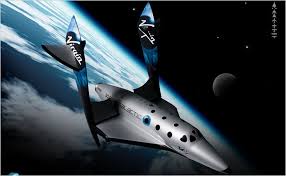
An October 2013 article in Aviation Week and Space Technology provided interesting revelations about the flight test program for Scaled Composites’ and Virgin Galactic’s SpaceShip Two. As reported by test pilot Mark Stucky at that year’s Society of Experimental Test Pilots Symposium, the flightcrew encountered a bit of a problem on the 16th glide flight of the prototype aerospace vehicle in September of 2011. During transonic flutter testing, the spacecraft experienced a tail-stall event which resulted in it becoming inverted. Despite instinctive spin recovery inputs by the pilot, the spacecraft remained in a spin for four revolutions. Without any alternative, Stucky decided to try using a flight control for a different role than what it was designed for. SpaceShip Two possesses a unique flight control system that has a capability unlike any other re-entry vehicle other than its forerunner, SpaceShip One. In order to re-enter the atmosphere without encountering high-speed heating, the Scaled Composites designed spaceships pivot their wings, essentially folding them up at a 45° angle. While designed for carefree reentry from space, not as a spin recovery system, SpaceShip Two quickly rolled upright and recovered. In upset recovery, these control applications are known as Alternate Control Strategies.
These strategies involve prevention or recovery techniques requiring the use of other (alternate) flight controls, either singly or in combination, to manage the effects of a failed, jammed or non-responsive primary flight control. This failure can be mechanical, environmental or aerodynamic in nature.
In the case of SpaceShip Two’s situation, the flight controls were unresponsive due to the aerodynamics involved in the otherwise unrecoverable spin. Although we have not yet had any spaceship pilots in class at this time, these Alternate Control Strategies are taught at APS in a manner that is applicable to all fixed-wing aircraft. We look forward to sharing this information with you through APS Upset Prevention and Recovery Training (UPRT).
Comments: